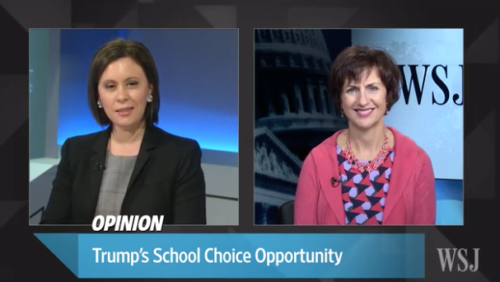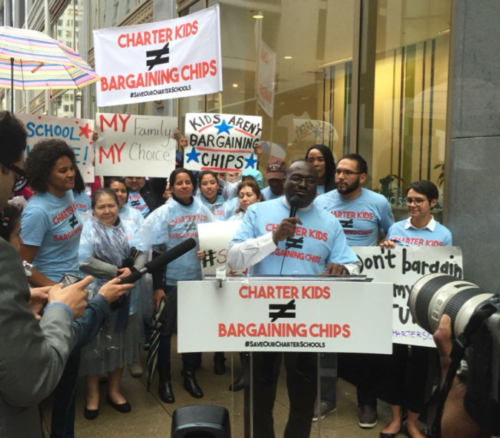
Newswire: November 15, 2016 — What Charter Schools Have To Tell John Oliver — What Massachusetts Can Learn from Trump — Chicago Union Contract Limits Charter Schools
WHAT THEY TOLD JOHN OLIVER. Yesterday, CER was live in Sacramento, CA to award the top spot in our “Hey John Oliver, Back Off My Charter School!” Video Contest to Natomas Charter School. The school of 1,574 students, opened in 1993, won for having the video that best demonstrates why their charter school is meeting students’ needs more than any other school in their community. “John, the world realizes that education is an archaic model that needs updating – that’s why we have charter schools. We experiment, challenge, create – we pioneer change in hopes that other traditional schools will follow suit,” a Natomas student said in the winning video submission. The volume and caliber of videos submitted is astonishing, and all are truly winners, as these videos do an amazing job of showing the important work that charter schools do day in and day out. See for yourself.

MASSACHUSETTS AND TRUMP. What can Massachusetts learn from president-elect Donald Trump’s victory? The answer in the Huffington Post.

ELECTION RESULTS. Do you know how parent power fared on election day? We analyzed races up and down the ballot for an important round up of results you should know about. CER CEO Jeanne Allen was live with the Wall Street Journal to discuss.

CHICAGO, CHARTERS, & UNIONS. While a charter school teacher strike – which would’ve been the nation’s first – was avoided in October, union troubles remain in the Windy City. The threatened strike at the city’s largest charter school was just a small show of union power, with the latest coming in the form of a separate deal approved by the Chicago Teachers Union that stifles charter schools. The district promised a “net zero increase in the number of board-authorized charter schools,” in addition to limiting the number of seats available to students. Not only does this limit the potential for innovative options for students, but this is dangerous because it now becomes the union’s default for the next contract go-round.












